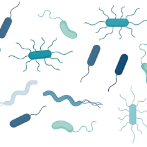About This Project
Plants have a complex symbiotic relationship with a diverse microbiome that influences their health, habitat adaptation, and ecosystem function. While plants possess inherent adaptive traits, their microbial associations also can play crucial roles. Understanding plant-associated microbiome composition and function is essential to uncover their strategies and impact. This project will investigate plant microbiota in stressful environments to study their role in adaptation.
Ask the Scientists
Join The DiscussionWhat is the context of this research?
Plants are the central component of an association with diverse microorganisms, collectively called the microbiome. The establishment and structure of these microbial communities on plants are not random but rather controlled by specific assembly rules and several factors. The presence of a subset of microbial lineages designated as the core microbiome is strongly associated with a certain host plant species, independently of soil and environmental conditions. Thus, the core microbiome involves fundamental microbial taxa that are important for plant fitness and also play an essential role in organizing the assembly of plant-associated microbiomes within and around host plants containing essential functions and genes for the fitness of the plant holobiont.
What is the significance of this project?
With a growing concern about environmental deterioration, the search for solutions to preserve the environment and find sustainable solutions that can be used in agriculture is increasing. Understanding the plant life system, such as its associated microbiome and its functionality is the first step to obtaining knowledge in this regard.
Ireland is characterized by a rainy and windy climate. However, it has an abundant plant diversity, with several species demonstrating remarkable adaptations to challenging environments such as lakeshores and coastal cliffs.
The question that arises is whether, in addition to the inherent characteristics of the plant genome, the plant microbiome could also provide auxiliary functions in habitat adaptation.
What are the goals of the project?
This project will be divided into three main goals. Firstly, the identification of culturable plant-associated microbiota in stressful environments. Using morphological and molecular techniques, will be possible to identify the microbial biodiversity and abundance in natural plant populations. Secondly, investigate the microbiota's role in habitat adaptation by inoculating host plants with selected microorganisms to determine their impact under stress conditions. Lastly, exploration of the transferability of the potential positive effects to non-host crops by inoculating them with the most promising microbes and subjecting them to stressful conditions.
Budget
I currently already have some of the materials and equipment needed for this project. Therefore, the budget will be allocated as follows:
Plant collection trip: This budget will be used to offset part of the expenses during our trips to collect plants from various regions of Ireland, including lakeshores and coasts.
Genetic Sequencing: This budget will contribute to covering part of the expenses associated with the genetic sequencing of microorganisms isolated from plants, facilitating their genetic identification.
Student Assistance: This budget will be dedicated to compensating a student who will actively participate in this research study.
Endorsed by
 Project Timeline
Project Timeline
Plants will be collected at four locations in the margins of lakes and cliffs in different points of Ireland.
Microorganisms will be isolated from roots. With the data collected, clustering analysis will be performed to depict the pattern of microbial diversity associated.
To determine the effect of microorganisms previously isolated on the native and no-native plant growth a greenhouse experiment will be designed.
Oct 02, 2023
Project Launched
Oct 16, 2023
Plant sampling
Oct 23, 2023
Microbial isolation and identification
Nov 23, 2023
In vitro activity of microbial cultures
Nov 24, 2023
Study the role of the microorganisms in the plant adaptation
Meet the Team
Eric Pereira
The topic of Plant-microbial interactions and Microbial Ecology has always fascinated me. My doctoral thesis was supported by the prestigious Marie Skłodowska-Curie Research Fellowship Ph.D. Programme. My thesis focused on fungal endophytic interactions with plant roots under abiotic stress conditions.
Prior to enrolling in the Ph.D. program, I had the opportunity to work on various projects about the impact of microorganisms on the environment. Specifically, I explored the interactions between plants and phytopathogenic and beneficial microorganisms.
As a postdoctoral research fellow at the University College Dublin, I am investigating the changes in the root system architecture of potato plants resulting from arbuscular mycorrhizas (AMF), potato cyst nematodes (PCN), and simultaneous AMF/PCN in situ. For that, I am using X-ray computed tomography (CT) to determine how both AMF and PCN compete for a position in the plant, assessing the mass/volume of belowground growth and 3-dimensional spatial root growth.
My expertise and contributions in these scientific fields have been recognized by invitations to deliver talks and presentations at various research institutes. These opportunities have allowed me to share my research findings and insights with fellow academics, industry professionals, and other stakeholders. In addition to my academic engagements, I have also been actively involved in scientific dissemination. Through various outreach programs and initiatives, I have worked to promote scientific literacy and awareness among farmers and the wider public, particularly on issues related to agriculture and sustainability. I believe that fostering such collaborations and partnerships is crucial in advancing scientific knowledge and achieving real-world impact.
Lab Notes
Nothing posted yet.
Additional Information
Project Backers
- 1Backers
- 1%Funded
- $5Total Donations
- $5.00Average Donation


